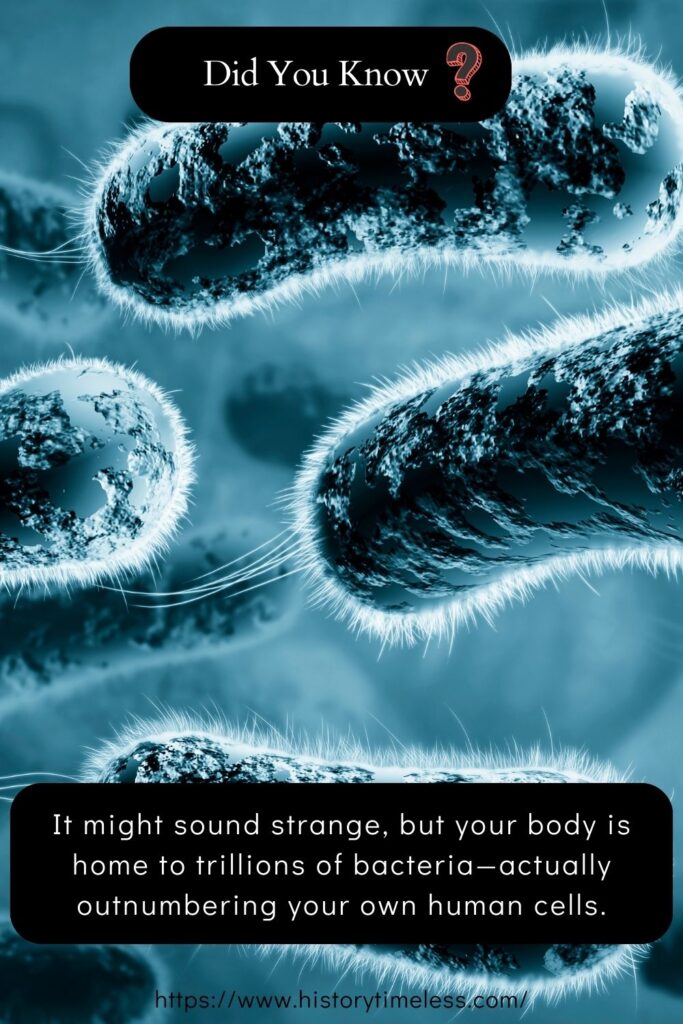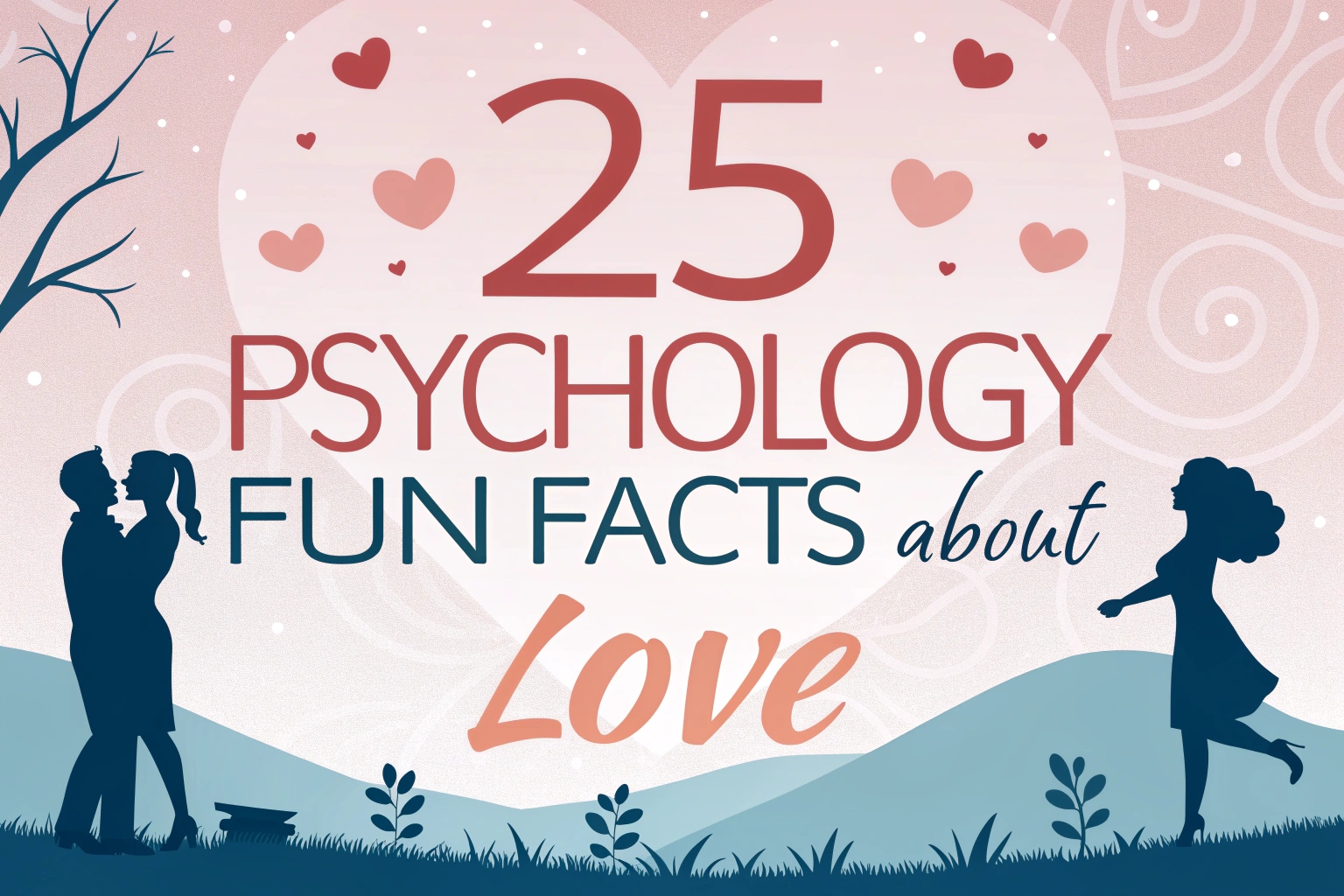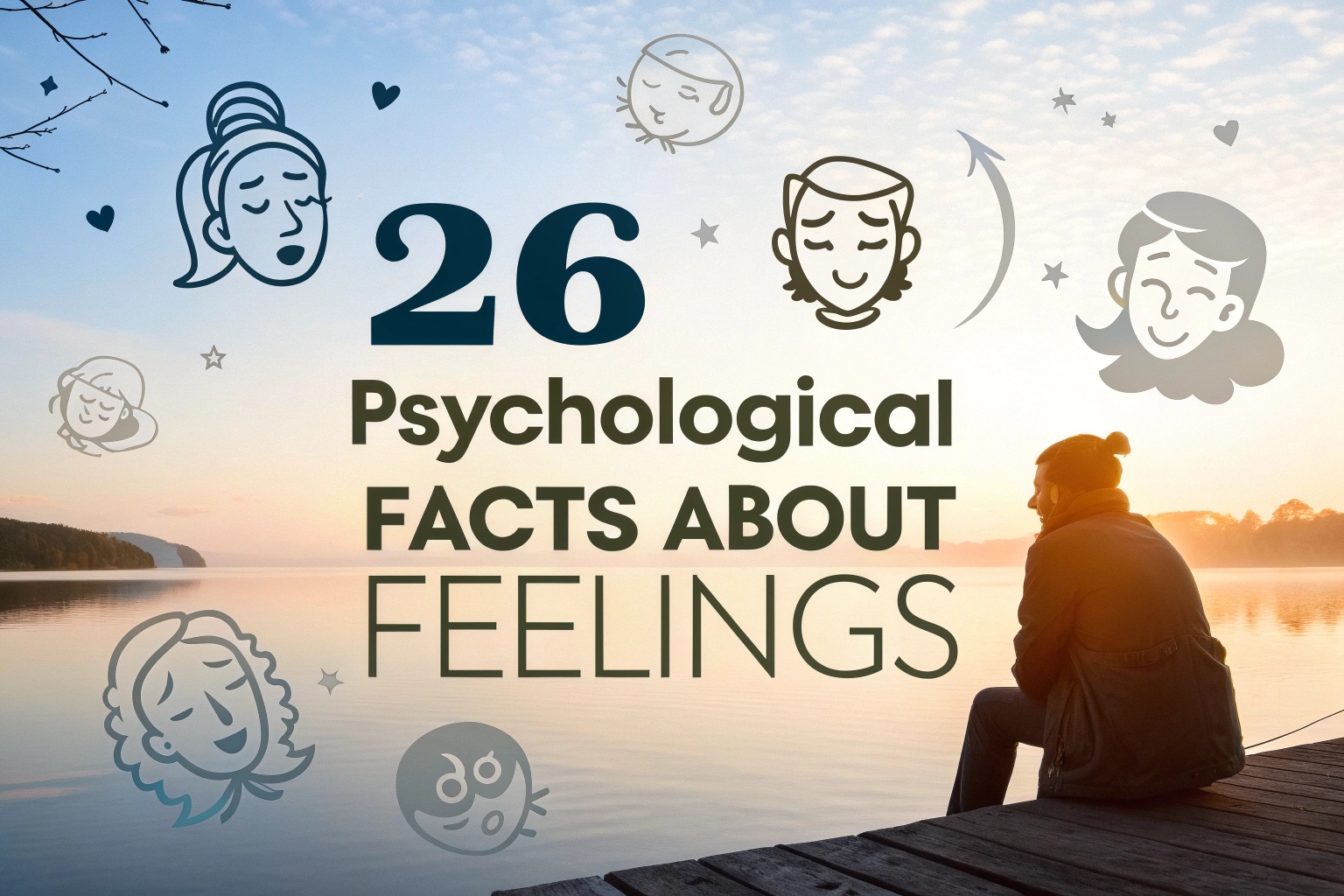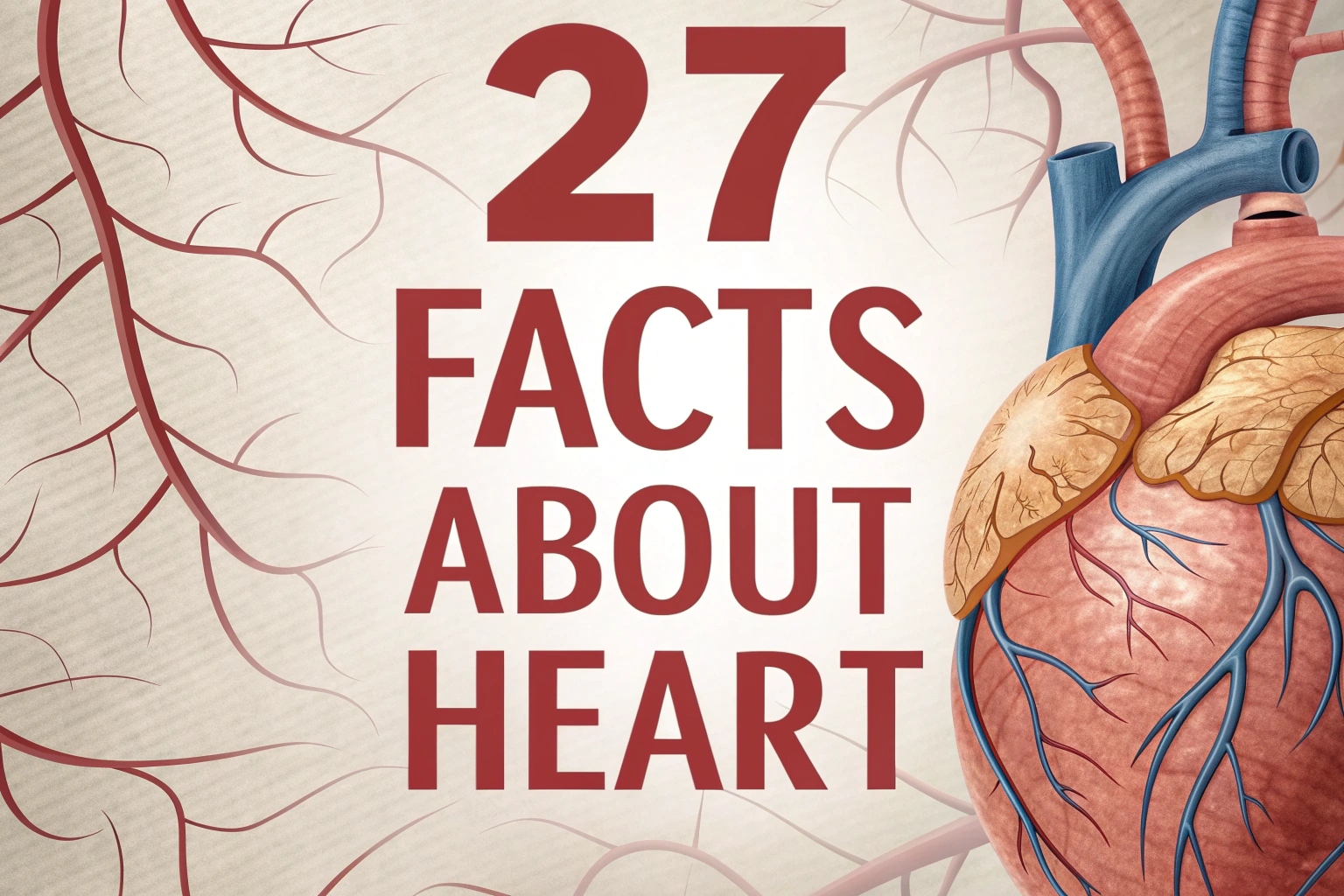The human body is an incredible machine, with each part working together in harmony to keep us alive and functioning. From the brain’s complex signals to the intricate workings of our cells, the body is full of mysteries and wonders.
Understanding how it works not only gives us a deeper appreciation for our own health but also opens the door to exciting discoveries in biology and medicine. Here are 26 fascinating facts about human body science that will make you marvel at the complexity of life.
1. Your Body Has More Bacteria Cells Than Human Cells
It might sound strange, but your body is home to trillions of bacteria—actually outnumbering your own human cells. The majority of these microbes live in your gut, playing a crucial role in digestion, immunity, and even mood regulation.

These bacteria are essential for many processes, and their balance can significantly impact your health and well-being.
2. The Human Body Can Produce Its Own Vitamin D
Unlike many vitamins that must be consumed through food, vitamin D can be synthesized by your body when your skin is exposed to sunlight. This vital nutrient helps regulate calcium and phosphorus, supporting healthy bones and immune function.
Just 10 to 30 minutes of sunlight exposure a few times a week is often enough to produce the necessary amounts for most people.
3. Your Heart Beats Around 100,000 Times a Day
The human heart is one of the hardest-working organs in the body, beating approximately 100,000 times each day to pump blood and deliver oxygen throughout your system.
Over the course of an average lifespan, the heart will beat over 2.5 billion times! This constant rhythm is vital for maintaining circulation and supporting overall body function.
4. You Have More Than 600 Muscles
There are over 600 muscles in the human body, ranging from tiny muscles in your ears and eyes to large ones like the gluteus maximus.
Muscles allow you to move, maintain posture, and support vital processes such as breathing and digestion. The muscle system works in tandem with bones to give the body structure and facilitate physical activity.
5. Your Skin Is the Body’s Largest Organ
While many people think of the skin as just a protective layer, it is actually the body’s largest organ, covering an average of 20 square feet in adults.
It serves many functions beyond just a barrier to the outside world—regulating temperature, preventing dehydration, and helping to process vitamin D. Healthy skin is essential for overall wellness.
6. The Brain Generates Enough Electricity to Power a Light Bulb
Your brain is an electrical powerhouse. It produces about 20 watts of electrical power while you’re awake, which is enough to power a small light bulb.
This electricity is used for transmitting signals between neurons, enabling thought processes, memory, movement, and sensation. The brain’s electrical activity can even be measured with an EEG (electroencephalogram).
7. Your Bones Are Stronger Than Steel
Human bones are incredibly strong and can withstand tremendous pressure. On average, bone is around five times stronger than steel of the same density.
The femur, or thigh bone, for instance, can bear up to 30 times the weight of a human body. The body’s ability to constantly renew bone tissue ensures that bones remain strong throughout life.
8. Your Stomach Can Dissolve Metal
The human stomach is a powerful organ, capable of secreting gastric acid that can break down food, but did you know it’s strong enough to dissolve metal?
The stomach’s hydrochloric acid has a pH of around 1.5 to 3.5, which is highly acidic and effective in breaking down food. Fortunately, the stomach lining regenerates regularly, preventing this acid from harming it.
9. The Human Body Can Repair Itself
One of the body’s most remarkable abilities is its self-healing process. Whether it’s a small cut or a broken bone, the human body has a built-in mechanism to repair damage.
Platelets rush to the site of an injury, starting the clotting process, while cells regenerate to heal the wound. Over time, bones and tissues also regenerate, ensuring that the body remains functional after injuries.
10. You Have About 100,000 Miles of Blood Vessels
If you were to stretch out all the blood vessels in your body, they would cover approximately 100,000 miles.
This extensive network of arteries, veins, and capillaries ensures that oxygen, nutrients, and waste products are constantly transported throughout your body. The circulatory system is vital for maintaining the health and function of all organs.
11. Your Eyes Can Distinguish Over 10 Million Colors
The human eye is an incredible organ that can perceive millions of different colors, thanks to the three types of cone cells in the retina that respond to various wavelengths of light.

This ability to detect a wide spectrum of colors enhances our visual experience, allowing us to see everything from the bright hues of a sunset to the fine details of a painting.
12. You Lose Around 40 Pounds of Skin Cells Every Year
Your skin is constantly renewing itself, shedding dead skin cells and replacing them with new ones. In fact, you lose about 40 pounds of skin cells every year, making it one of the most dynamic tissues in the body.
This turnover is essential for maintaining healthy skin, protecting against pathogens, and repairing damage from environmental stressors.
13. Your Liver Can Regenerate Itself
The liver is one of the few organs in the body capable of regenerating itself. If part of the liver is removed or damaged, the remaining tissue can grow back to restore normal function.
This remarkable regenerative ability is one of the reasons the liver is so vital for detoxification and metabolic processes.
14. Your Body Produces New Blood Cells Every Day
Your bone marrow is constantly working to produce new blood cells, including red blood cells, white blood cells, and platelets.
On average, your body produces about 2.4 million red blood cells every second, ensuring that your blood supply is always replenished and able to carry oxygen and fight infections effectively.
15. You Can Survive Without a Spleen
While the spleen plays an important role in filtering blood and supporting the immune system, you can live without it. The body compensates for the loss by enhancing the function of other organs like the liver and bone marrow.
However, without a spleen, individuals are more susceptible to certain infections, and medical care may be required to prevent complications.
16. Your Brain Is More Active While You’re Asleep
While the body rests during sleep, the brain remains highly active. In fact, it’s believed that the brain is even more active during certain stages of sleep, such as REM (Rapid Eye Movement).
During these stages, your brain is involved in processes like memory consolidation, problem-solving, and emotional regulation.
17. Your Fingernails Grow Faster Than Your Toenails
On average, fingernails grow faster than toenails, with fingernails growing at about 3.5 millimeters per month, while toenails grow at about 1.6 millimeters per month.
This difference in growth rates is influenced by factors such as blood flow, which is more abundant in the fingers than in the toes, and the level of pressure and movement each finger or toe experiences.
18. The Human Body Can “Sense” Gravity
Your body has an inner system, known as the vestibular system, located in the inner ear, that helps you sense gravity and balance.
This system uses fluid-filled structures to detect motion and position changes, allowing you to remain upright and coordinated. It’s what helps you walk, run, and even ride a bike without constantly thinking about balance.
19. Your Body Contains Enough DNA to Reach the Sun and Back
If you were to stretch out all of the DNA in your body end to end, it would reach approximately 67 billion miles, which is enough to travel from Earth to the Sun and back—600 times!
DNA is incredibly long and tightly packed into each cell, allowing your genetic information to be stored in a compact yet highly efficient form.
20. Your Blood Type Affects Your Health
Your blood type can have a significant influence on your health and disease susceptibility. For example, people with type O blood tend to have a lower risk of heart disease, while those with type A blood are more likely to develop certain types of cancer. Blood type is also a factor in how the immune system responds to infections and vaccines.
21. You Have a “Gut Brain” That Affects Your Mood
Your gut is sometimes referred to as your “second brain” because it contains a complex network of neurons that communicate with your actual brain. This gut-brain connection influences your mood, stress levels, and even mental health.
Many scientists believe that the gut microbiome plays a crucial role in mental well-being, suggesting that a healthy gut can support a healthier mind.
22. Your Sweat is Odorless Until It Meets Bacteria
The sweat produced by your body is actually odorless. It’s the bacteria on your skin that break down the compounds in sweat, leading to body odor.
This interaction between sweat and bacteria is why people often smell different depending on their diet, health, and hygiene habits.
23. Your Eyes Blink About 15-20 Times Per Minute
On average, your eyes blink about 15 to 20 times per minute. Blinking helps keep your eyes moist, clean, and free from debris.
It also provides brief moments of rest for your eyes, allowing them to refresh and refocus. Despite being automatic, blinking plays a significant role in eye health.
24. Your Body Contains About 37.2 Trillion Cells
The human body is made up of around 37.2 trillion cells, each with a specialized function. These cells work together to form tissues, organs, and systems that allow the body to function.
The number of cells in the body continues to change, as new cells are constantly being produced to replace older or damaged ones.
25. You Have the Ability to Detect Ultra-Fast Movements
Your eyes can detect incredibly fast movements that are too quick for most other animals to see. The human eye can track movements as fast as 60 Hz, or cycles per second.
This ability plays an important role in our interaction with the environment and helps us react quickly to fast-moving objects.
26. Your Heart and Brain “Talk” to Each Other
Your heart and brain are constantly communicating through electrical signals, hormones, and neural pathways.
The heart sends information to the brain about your emotional state, and the brain can influence the heart’s rate and rhythm. This relationship is why emotions like stress or excitement can make your heart race or your palms sweat.
Unearth more astonishing truths:
25 Facts About Guys Crushes Psychology!
25 Facts About Harry Potter Even Hardcore Fans Often Miss!
26 Psychological Facts About Love That’ll Shock You
28 Wild Horse Facts That’ll Totally Blow Your Mind!





